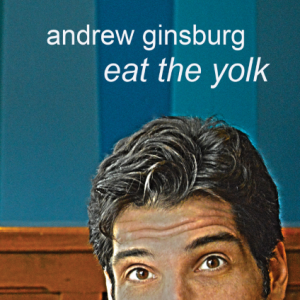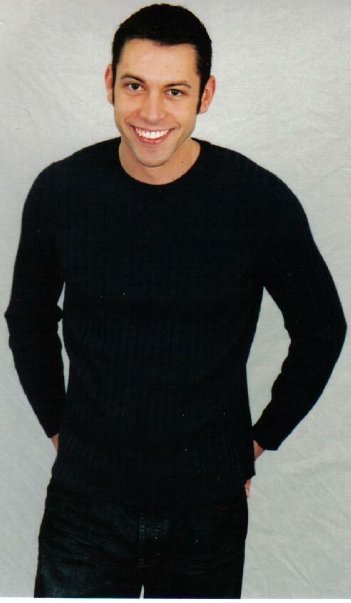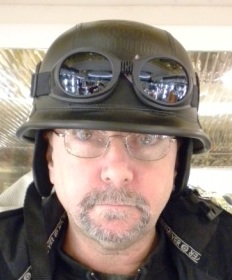 Today I’m interviewing Josh Spector. Josh is the founder of ConnectedComedy and has spent the last 14 years working in comedy marketing, production, and content creation with an emphasis on digital platforms. Previously, Josh was a Senior Vice President of Content and Marketing for Comedy.com. He produced, booked, and marketed national branded standup comedy tours including the High Times Comedy Festival and the Vivid Comedy Party. Josh also consulted with New Line Cinema on marketing strategy for hit comedy films including The wedding Crashers, Sex and the City, and Harold & Kumar Go To White Castle.
Today I’m interviewing Josh Spector. Josh is the founder of ConnectedComedy and has spent the last 14 years working in comedy marketing, production, and content creation with an emphasis on digital platforms. Previously, Josh was a Senior Vice President of Content and Marketing for Comedy.com. He produced, booked, and marketed national branded standup comedy tours including the High Times Comedy Festival and the Vivid Comedy Party. Josh also consulted with New Line Cinema on marketing strategy for hit comedy films including The wedding Crashers, Sex and the City, and Harold & Kumar Go To White Castle.
I’ve worked in some combination of marketing, content, entertainment, comedy, journalism, and digital for pretty much my whole career so it’s tough to say how it really started. But, back in 2006ish I launched a comedy blog called Whip It Out Comedy to showcase all the interesting stuff I was starting to see comics creating and posting online. In the process of doing that, I started to apply what I knew about marketing to the site and grew the traffic.
A couple years later, the site got acquired by a startup (Comedy.com) and I wound up running Content and Marketing for that site. Again, I learned a lot in growing the traffic for that site. I started to realize that I had a lot of knowledge about the marketing of comedy online and that there really wasn’t anybody else out there sharing that kind of expertise with the world, so I launched Connected Comedy to do just that about 4 years ago.
How are you using the internet / social media to promote your career? How are you using it to promote your clients? What kind of payoffs have you noticed?
While Connected Comedy initially started as just a blog and then grew into a full consulting business, a couple years ago I was approached to run digital media for the Academy of Motion Picture Arts & Sciences which was an opportunity too good to pass up. So, for the past couple years Connected Comedy has really just been a side project for me and I don’t really have “clients.”
That said, I do occasionally consult with individual comics and it always tends to be different based on their individual goals, needs, and interests. It really has to start with having a clear goal and it’s amazing to me how often comics haven’t even really considered what their specific goals are – they know they want to have a career, or get famous, but they haven’t really thought through exactly what they want and why, let alone figure out a plan to get there.
It’s funny how many times a comic will ask me something like “How do I get more Facebook fans,” and then when I ask them why they want more Facebook fans and how they think that will help them achieve their goal they have no idea. I help them think through all that and figure out what really are going to be the most effective tools and strategies to get where they want to go – and a lot of times help them figure out where they want to go in the first place.
As far as using social media to promote my career, it’s important to mention that I’m not a comic and never have been. My expertise is in the marketing and business side of comedy and that’s what I focus on. That said, many of the things that I teach comics I’ve used myself to build Connected Comedy into a large community so I feel pretty confident that it works.
When you work with a comedian, how much of the marketing is online vs offline? Why?
It’s a combination. I think sometimes people get distracted by these online tools and forget that’s all they are – tools. All the online stuff is just something that creates an opportunity for you to reach a lot of people at virtually no cost. That creates incredible opportunities, but it doesn’t work if you’re not good.
Also, I think people can get so focused on the online marketing opportunities that they forget how easy/powerful some of the offline opportunities are. They’ll chase Likes and Retweets all day, but won’t ask the people that actually see them perform to join their email list. It’s kind of insane.
What do you think about comedians posting videos of their performances online?
There’s a lot more upside than downside. You don’t have to post video of every open mic you do and there’s no reason to post bad video of yourself online, but once you get to a certain point it’s crazy not to post video of yourself online. You want to be discovered, you want people to be able to find you. YouTube is the second largest search engine in the world – not posting videos on there is the equivalent of telling Google to pretend you don’t exist.
How do you think digital tools have changed comedy? How do you think they will change comedy in the future?
I think they’ve completely changed the comedy industry and it’s amazing how many comics don’t want to admit it. Especially guys that are about a decade in right now – they came up when the game was played a certain way and expected to reap the rewards now of the time they’ve put in. But, right before it became “their time,” the whole industry got flipped upside down and everything’s changed.
I think we’re in the process of shifting to a comedy world where it’s really all about a comic’s ability to build their own fanbase and that the “gatekeepers” are increasingly looking to find people with existing fanbases as opposed to looking for comics that they think they can build fanbases for. That’s a huge shift and it’s really shaking a lot of things up.
What do you think about the movement to “one screen.” (Where it no longer matters if content is consumed via TV, phone or tablet.) How will this affect comedy?
All of the technological advances lead to the same thing in my opinion – more opportunities, but also a need for comics to be more entrepreneurial and more creative. There used to be a relatively straightforward path to a comedy career – work your way up through the clubs, get late night TV spots, get specials, get a sitcom, etc.
Now, you have careers getting launched from all over the place – YouTube, podcasts, Vine, Twitter, etc. in addition to the more traditional routes of clubs, sitcoms, etc. It’s a really interesting time, but also one that can be very frustrating for comics because of the lack of clarity of path.
You have a podcast, Connected Comedy. Why’d you decide to start it? How has that helped the rest of the business?
It actually evolved naturally out of the community. Several Connected Comedy readers from across the country – including Jordan Cooper, Josh Homer, and Chelcie Rice – approached me with the idea and agreed to help produce it. Lately, we haven’t put out episodes as consistently as we should, but it’s been a great platform to reach a new audience and educate/entertain them in a different way.
It’s not really directly related to the “business” of Connected Comedy other than the fact that anything that’s good for the community is ultimately good for the business in some way.
How much information do you think comedians should share on the social networks?
It all depends on their goals. But what I think is most important is that they have a strategy for what they’re doing on social networks and what they’re trying to accomplish. It’s not about whether you share a lot or a little, it’s about understanding why you’re sharing what you’re sharing and what you hope to accomplish with it.
You produced a tour “Vivid Comedy Party” which combined comedians with porn stars. How’d that come about? Is this an example of a niche show that would’ve been harder to pull off before the internet?
I had a production company with a partner and we were working to develop some comedy movies with High Times magazine. Then I had the idea to launch a High Times comedy tour and it worked well. That got me thinking that we could do something similar with other niche brands because people would come to the shows based on the niche theme – even if they didn’t know the actual comics performing. So we approached Vivid, and launched the show.
It really wasn’t tied into the Internet at all, it was more a general marketing strategy. This was also happening in the early MySpace days so it was a very different social media environment. I think now something similar to this could probably be exponentially more successful thanks to the rise of social media in the past few years and the ability to find/connect with those niche audiences online.
I recently made an observation to a comedian friend of mine that, “It’s 10x easier to make comedy, 100x harder to get noticed, and 1000x harder to get paid.” What are your thoughts on this?
Not sure I agree with that. I’ll say this: It’s just as hard as ever to make GOOD comedy. It’s a million times EASIER to get noticed because the Internet has connected the world. and you’re competing with 1,000x as many people to get paid so you better be awesome.
What ís your weirdest online experience involving your comedy promotion career?
I’ll give you a non-comedy example. No matter how much you know, you never know for sure what’s going to happen on the Internet and what’s going to catch on. The most successful thing I’ve ever posted might be something that I never actually promoted at all – it’s this video of a Taiwanese bank commercial that I posted on my personal site and wound up driving 2 million people to my site. Here’s the story behind that.
Opportunities are created on the Internet by doing things consistently – most comics give up too quickly and that’s why most comics fail to get much out of what they do online.






